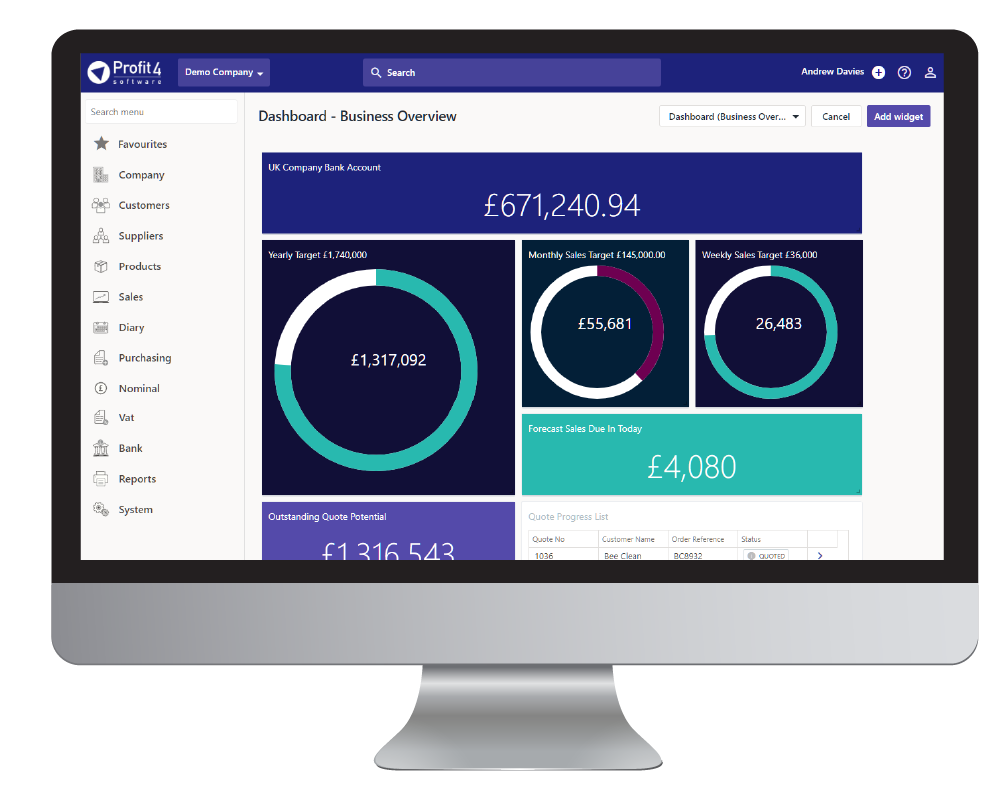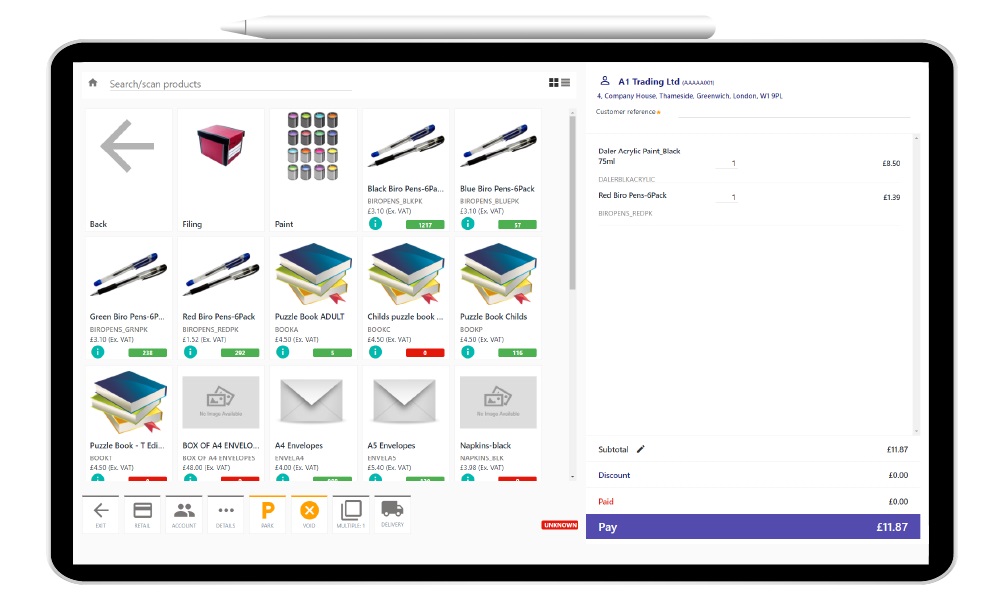
Many builders’ merchants and distributors are increasingly turning to ERP to optimise processes, future-proof business and boost profits. Nick Davies, Head of Software Development at OGL Computer, explains more.
Builders’ merchants have always played a dominant role in the construction industry, acting as the go between for trade companies and their buyers. Despite the initial impact on builders’ merchants’ sales in Q2 2020, during the initial lockdown, the sector saw a rise (of 63.2% in Q3, for example — see https://www.bmf.org.uk/BMF/News/Builders-Merchant-bounce-back-in-Q3) thanks to the merchant sector having been allowed to remain open.
However, the merchanting industry itself is undergoing change following the COVID-19 pandemic in a bid to ensure supply chains remain unaffected and site operating procedures adhere to safe working practices.
Figures from Constructionline (https://www.constructionline.co.uk/insights/news/covid-19-infographic/) showed that 62% of construction companies suspended operations due to COVID-19, and 38% believed that they would have significant financial difficulties as a result of the pandemic in 2020. However, to meet the continued need for products and services, savvy builders’ merchants are going multi-channel and have already adapted their strategies to cater to changing demands and to remain responsive in lieu of changing restrictions.
Connecting all areas of business using an ERP (enterprise resource planning) software is an approach that many builders’ merchants and other trade counter operations and/or distributors such as More Handles, Allfix, Pickard Hardware and Forgefix have taken to optimising processes — from sales orders, stock, pricing and online selling to the actual dispatch of goods.
By connecting business processes into one central system, they have streamlined operations, removed the manual processes which could have held them back during lockdown and given them full control and visibility of both orders and stock levels. This assists with delivering quality customer service on trade counters, over the phone and via e-commerce websites. All of which can help to boost profits and future-proof builders’ merchants’ businesses.
Against this backdrop, we have just launched our next generation ERP solution — Profit4 — that provides stockists, distributors and wholesalers with an intuitive user interface built on future-proofed technology to manage all core business processes. From contact management to multi-channel sales order management, ecommerce, stock control and management, finance and accounting in addition to reporting and analytics, Profit4 removes the manual processes that hinder progress and allow you to drive your business forward.
 Online salvation
Online salvation
A survey conducted by OGL Computer pre-pandemic among builders’ merchants and other wholesale distributors (see https://www.ogl.co.uk/profitability-in-wholesale-businesses) found that interest in e-commerce was growing significantly across all sectors, including construction, and the ease that a multi-channel sales strategy provides was recognised by 82%, who revealed that selling products online easily is very important to them.
And with more merchants now turning to online sales channels to keep up with unprecedented demand, ecommerce teams, like our own, have been busy supporting distributors and wholesalers by integrating online sales channels, including Amazon and eBay, and updating websites to help them fulfil orders and also attract new business.
Implementing an ERP solution, which provides full control over all business systems, helps builders’ merchants collate and manage all necessary functions, from centralising business information and automating manual processes to controlling stock movement, so they can seamlessly enable — and more importantly manage — the adoption of additional digital channels relatively easily, and without any significant overheads.
ERP systems give businesses greater control of stock, as 82% of SMEs interviewed by OGL Computer stated, and many of those (76%) were already experiencing the benefits that having an ERP solution integrating disparate systems brings.
Cloud flexibility
Allfix, a nationwide supplier of fasteners, fixings, rolls and sealants, implemented an ERP solution that enabled it to increase operational speed, thanks to keeping real-time track of stock, and increase performance by enabling quicker workflow, and faster distribution of goods to customers.
By hosting its ERP solution in the cloud rather than on its premises, various sites were connected seamlessly, allowing the distributor to securely access data from multiple locations even while staff were at home working remotely. Allfix was also able to speed up running of reports using its cloud-hosted ERP solution, which essentially freed up staff time, so it could concentrate on other parts of the business to keep it running during lockdown.
For businesses with staff working remotely in the current climate, cloud-based subscription-model systems like Profit4, with all data held securely in Azure, are attractive. Data is easily accessible from anywhere, so departments can collaborate and share Information within agreed access permissions.
 Maintain consistency
Maintain consistency
An ERP solution can also help to maintain consistency across multiple sales channels, which is often the single biggest operational challenge for any business. Using it, whole teams can stay on top of pricing and stock control levels to avoid input errors, ensure orders are processed and deliveries are made on time. This is essential when supplying construction companies with building materials for projects and ensuring quick delivery to contracting firms or individuals.
In addition, thanks to an increasing choice of builders’ merchants combined with an awareness of particular materials shortages, purchasing decisions have become more considered. Customers will research where they can get what they need and at the time they need it, but this also means they can easily source alternative suppliers if their usual stockist lets them down.
Through capturing data about a customers’ buying habits, using a CRM system, merchants can increase sales by targeting specific customer groups with more focused messaging or by suggesting alternatives to traditionally purchased products.
By using an ERP system with an integrated CRM module, businesses can go one step further by accessing the data and tools, and extracting, reporting and analysing all of the customer information to enhance the effectiveness of a marketing campaign, for improved success.
Reduced admin
Lastly, using an ERP solution can save time that would usually be spent on administration tasks like logging into different systems to check for information, such as current stock levels or a customer’s specific order history. Indeed, our research found that 57% of SMEs cited reducing administration time as their main reason for turning to a single ERP system, followed by improving accuracy of information (40%) and removing duplication of work across different departments (37%) to increase efficiency.
Although businesses all have their own priorities when it comes to multi-channel sales strategies, using an ERP system is the most effective way to ensure order processing times are reduced, allowing for quicker delivery times, which is essential in the current climate.
By connecting all areas of the business using ERP software, builders’ merchants can tick all of the boxes required to manage both physical and digital sales channels, including an ecommerce website.
For more information on OGL Computer’s ERP solutions for merchants, go to https://www.ogl.co.uk/why-ogl-computer









